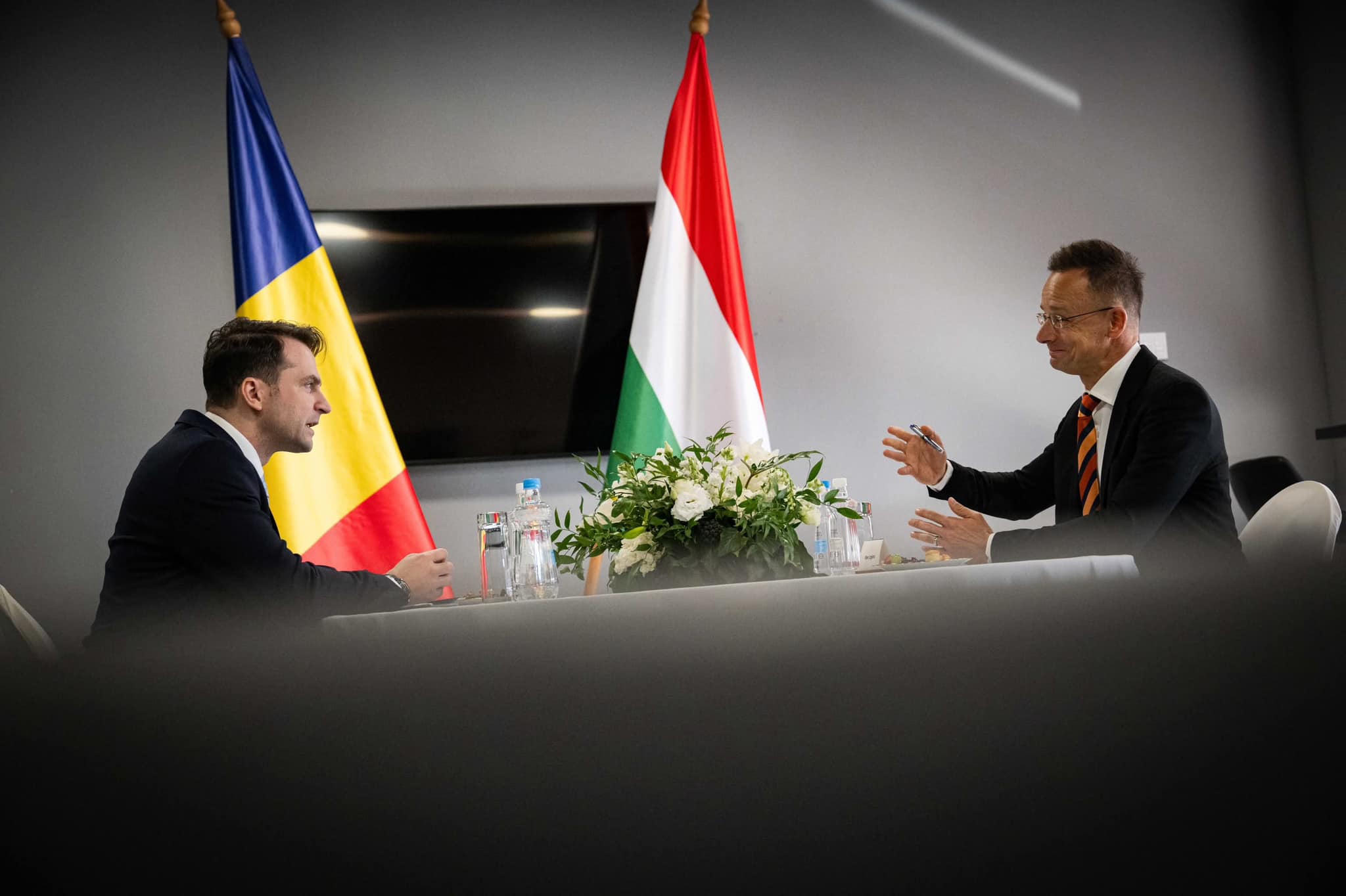Hungary, Romania agree on solidarity measures to safeguard security of gas supply

Minister of Foreign Affairs and Trade Péter Szijjrtó and Romanian Minister of Energy Sebastian Ioan Burduja signed an intergovernmental agreement on solidarity measures to safeguard the security of gas supply in Budapest on Monday.
The agreement will contribute to Hungary’s energy security and maintaining the regulated utility prices for households, Szijjártó said after the signing. With the agreement, he added that the dominance of Hungary’s gas deliveries from the south has increased. Szijjártó pointed to Romania’s large energy production and storage capacity and its access to alternative gas supply routes. He said the interconnector between Hungary’s and Romania’s gas networks had an annual capacity of 2.6 billion cubic metres. Last year, 1.8 billion cubic metres of gas was delivered through the interconnector, he added.
Szijjártó said talks were underway on purchasing gas from an offshore project in Romania that was set to make the country a net gas exporter. He added that the Black Sea gas field project will diversify the region’s energy supply. He said that cooperation is based on the fact that both countries see energy supply as a physical, practical issue rather than an ideological one and that there is agreement on natural gas’s future role.
“The fact that there has already been a very active, dynamic and fruitful energy cooperation between the two countries is also a good basis for cooperation,” he added.
At the joint press conference, Szijjártó pointed out that Romania has significant extraction capacities, which will be further expanded in the future, and that the neighbouring country has a large storage capacity in regional comparison, which also has access to alternative sources.
“Hungary therefore has an important interest in being able to sign this gas solidarity agreement with Romania as soon as possible,” he said.
The minister pointed out that, following recent events, the southern direction has become dominant in the supply of natural gas to Hungary, and with the current agreement, this will become even more so. “Hungary’s gas supply will continue to come mainly from the south,” he said.
He said that Romania has a huge opportunity to become a net exporter of natural gas thanks to a large offshore field.
“This will be the only new gas deposit or gas source opportunity that can serve the purpose of diversification here in the region. So, of course, we are interested in expanding our gas cooperation with Romania and the necessary commercial negotiations are already underway between our companies,” he said. “And we hope that they can conclude a trade agreement that will be able to bring about progress for both countries in terms of business, financial and energy security,” Szijjártó stressed. “Finally, I would like to underline once again that this historic gas solidarity agreement between Hungary and Romania will contribute to the security of energy supply of Hungary and to the maintenance of the results of the cuts in tariffs”, he concluded.







